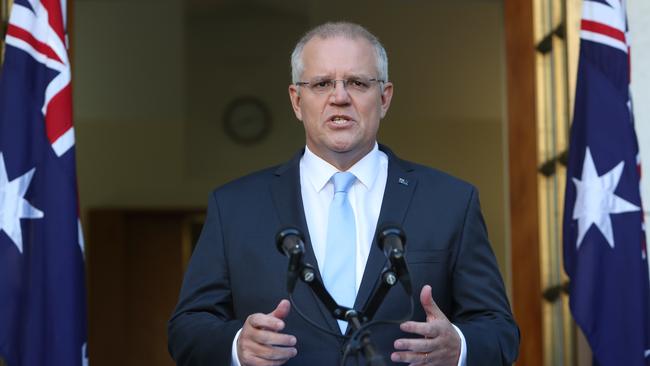
It will focus the minds of voters on the choice at hand. It will even change opinion polling responses because the question represents a real alternative now rather than just a chance to send a message.
Morrison framed the election in predictable but compelling terms, highlighting why this election was always set to be a willing contest rather than the Labor landslide that so many commentators have been predicting. The economic and budget repair job has been successful, as has the restoration of our maritime borders, and voters know there is some risk on both those fronts if there is a return to Labor — only the quantum of the risk is in question.
On top of that is the climate and energy debate where Labor’s ambitious goals might win it extra votes in some city electorates but also will expose it to strong attacks in the suburbs and regions about electricity prices, industry costs, transport upheaval and economic harm. Labor also has a wide range of tax increases to defend as a price to pay for what will be popular spending promises.
The ground game in individual seats will be pivotal and the Labor Party tends to have the better operation, bolstered by unions and activist groups such as GetUp! But remember the Coalition needs to pick up seats; it must retake Wentworth, hold on to Chisholm with a new candidate, defend other seats such as Sturt and Stirling where long-term members/ministers are retiring, and snatch a seat or two elsewhere.
It is an imposing task whereas for Labor, if they can turn the pendulum their way by just a percentage point or two, a host of seats will fall their way.
In 2016 Labor faced no strong rhetorical attacks on their record or their policies and no negative advertising campaign. For that reason alone, the result flattered them. Of course, the Coalition has trailed in the polls for virtually the whole time since. But polls don’t count, only votes do — and the real question here is can the Coalition improve marginally on its 2016 performance?
This campaign will count more than most. The performance of both leaders will be immensely important, one major stumble from either might be enough to dictate the result. Shorten carries the extra burden of favouritism but he does have a team united behind him for now. Morrison goes into the campaign with less pressure and a little bit of momentum but will be worried about the prospect of blue-on-blue sniping.




Now Scott Morrison has our attention. For all the games and phoney campaigning going on, really since Morrison was sworn in as Prime Minister but especially since last week’s budget, the election announcement cuts through.